Is industry experience enough to predict career success and future work performance?
A daunting question for recruiters when faced with selecting between two candidates – one with substantial experience in the industry but with no new ideas to offer, and the other, with relatively less experience but a significant drive to learn.
Whom to go with?
Of course, the usual way out would be to decide based on the role, seniority, designation, skills required, etc. But what if, after factoring in all these parameters, your gut (and prudence) tells you to go with the second option?
Learning drive-based hiring is on the rise. It is a relatively novel approach to recruiting and selecting candidates that focuses on their learning potential and motivation, rather than solely on their technical skills and experience.
Why is industry experience no longer the sole focus?
Industry experience, while a powerful asset in making your resume stand out, is not everything. Given the changes in workforce composition and aspirations today, coupled with the changing job or skill (both hard and soft) requirements, you cannot bank on industry experience alone to deliver results.
While industry-specific skills and knowledge are important, they can be developed and taught through training and experience, making a candidate’s potential to learn and adapt just as important as their current experience or qualifications.
Therefore, it is extremely important to assess the natural or genuine drive for learning – aka intellectual curiosity – of an individual.
Why is intellectual curiosity a key consideration in hiring top talent?
Intellectual curiosity indicates a strong desire to learn and understand new ideas and concepts. It is a valuable trait in hiring, as it suggests that the candidate is motivated to continuously develop their knowledge and skills. Intellectual curiosity can be an indicator of a candidate’s potential to adapt to new challenges, innovate, and think creatively.
This makes it highly relevant in the current workplace culture.
As per a research article, Cognition and Curiosity: Strategies for Firms to Recruit Curious Employees, published in February 2023 in Taylor & Francis Online (the journal content platform for UK-based publisher Taylor & Francis), curiosity has long been considered crucial for the ability to learn, and has been associated with innovation and entrepreneurship. It is important that employers know how to identify curious candidates in cost-effective ways during the recruitment process.
According to an article by the Canada-based Niagara Institute, engaged in leadership development and training, the impact of intellectual curiosity on business is high.
- Cultivating intellectual curiosity enables employees and managers to be flexible and adapt to changes.
- It enhances creativity and fosters rationality to address challenges and issues
- Intellectual curiosity helps managers to establish trust with their team and build a collaborative work environment.
But every road has its own challenges. How will you determine if a candidate is the right fit from the perspective of intellectual curiosity?
How to spot an intellectually curious candidate?
To grow, you must know.
This will help you identify the learners. There are three types:
The quick & wise: These are the fast learners. Amid the rapid pace of technological advancements, companies need employees that can scale up faster, are agile and adaptable. Compared to those with industry experience that may be more set in their ways, this crop has a hunger for knowledge and can quickly assimilate information.
Seekers of continuity: This set is constantly on the lookout to enrich its knowledge. They would scout for growth opportunities, striking the right conversations with experts in the domain or others with insights. They contribute to a culture of learning and development.
The progressives: Their curiosity stems from understanding the workplace and work environment better – the people, the prospects, the situations. They go beyond what’s expected of them, often approaching their managers upfront about innovative approaches and solutions to pressing issues.
How does knowing the three types help?
It will enable you to prepare a diverse set of questions for assessment and evaluation. You can place the candidates better within the organization and provide them with the right environment to grow, in line with their disposition.
Most things disappear when you look deeper.
Unless, what you are looking at it true and real. This is imperative for incisive evaluation.
And how will you do that? By striking the right conversation and being an intuitive listener.
- Check out their resourcefulness by asking tough questions. One such thing could be to ask them for out-of-the box estimations or projections. According to an article by Brainscape Academy, a web and mobile education platform, this is a strategy often employed by leading consulting firms.
For example, you are hiring for a mid-level healthcare specialist position. It is important to assess how far the candidate is informed about the current level of advancements in healthcare. Ask them which specific newsletters are worth being subscribed to and why. This differs from asking which ones do you read?
Your question will push them to think not just about the top 4-5, but also what is the distinctive factor for the newsletters: quality of info, the presentation, relevance of facts, timeliness?
It gives you an insight into whether the candidate is an active self-learner who stays on top of the trends, and can see beyond the obvious. A candidate with such a thinking will also acquire difficult concepts through self-learning and not depend on guidance from seniors. - Ask them to cite examples or share anecdotes about how they may have accomplished a challenging task. Did they volunteer for any challenging assignment? What steps did they take to achieve the results? What was the outcome? Did their effort to participate translate into any kind of promotion, or a change in title? If not, what other steps could they have taken or should take that will lead to scaling up?
- How are they working to extend their knowledge? Any webinars, community meet-ups, or courses they are availing?
- How comfortable are they with new technology? Say you are interviewing for a role in supply chain or inventory management. It is understood you will ask if the individual has been a part of any tech initiative in their previous organization. Suppose the person has been a part of a project, such as developing or revamping their online portal. Your focus should be on understanding their approach. What are the features they worked to add, and why? What learning drove them to suggest or implement those changes? Or, if it is a software installation, which new coding did they learn on their own to help in the implementation?
- Similarly, assess their understanding or drive to scale up for soft skills. In healthcare, you could ask questions about dealing with demanding patients, or addressing tricky situations triggered by patients withholding important information? Whom did they consult, what measures did they take, or how will they use digital applications to improve care management for the elderly, etc. These questions will help you assess their soft skills, presence of mind, confidence levels and, above all, the learning they have derived or intend to.
- Observe their approach to handling tough questions. How long do they take to answer? Is it an immediate ‘no’, or a thoughtless ‘yes’, or do they think through for feasible solutions and then come up with something concrete? Do they ask for more time, or some further help? How long are they willing to persist and tap the resources available to arrive at an answer?
For instance, you could ask them how their ideas or initiatives contributed to the bottom line in their previous company. Or, you could ask them how they see their role in your organization facilitating digital transformation.
Give them hypothetical situations that are challenging and ask for probable solutions. Frame the scenarios around issues or topic that you don’t expect candidates to know how to address right away. - Ask them incisive questions about themselves and their aspirations. While this happens in almost all interviews, you need to look deeper. If you are asking about the skills that they would like to gain, find out on what grounds is their choice based. Your aim is to not know the obvious—that is a given in any interview. Assess their responsiveness, behavior, and preparedness.
- And now it’s their turn to speak. This is, perhaps, the most significant part of evaluation-Fielding questions from the candidate. How well a candidate prepares for an interview can be a good indicator of their enthusiasm for learning. This can be assessed by the questions they ask about the company and the role.
So, if you are hiring for the position of a developer of e-commerce solutions, the candidate should come prepared with specific questions about your inventory management platform, technology architecture, etc. A candidate for a sales role should have questions about sales and marketing analytics or the resources available for sales enablement, such as just-in-time content, etc.
Asking pertinent questions indicates the individual has done the due diligence before the interview, is a self-learner, and will readily go the extra mile to bridge the knowledge gaps in their course of work.
To conclude
Intellectual curiosity plays a key role in talent recruitment. The desire to learn is imperative to the growth of both the individual and the organization. It is based on the core principle that people learn, that skills – hard or soft – can be acquired through learning & development. Therefore, deciding candidature solely on the grounds of lacking industry experience is gradually being supplemented with the potential or drive to learn and scale up.
Great learners, given their capability and drive to scale up and deliver fast, are innovative. Given their penchant or epistemic curiosity to understand mechanisms, functions, systems, relationships, they don’t just develop an intuitive understanding but also innovative solutions to issues.
Organizations are looking for individuals with high intellectual curiosity. The ability to spot and ask a genuine “why” is increasingly becoming core to thriving in the workplace of today and tomorrow.
Someone rightly said, “The mind that opens to a new idea never returns to its original size”. (Albert Einstein)


